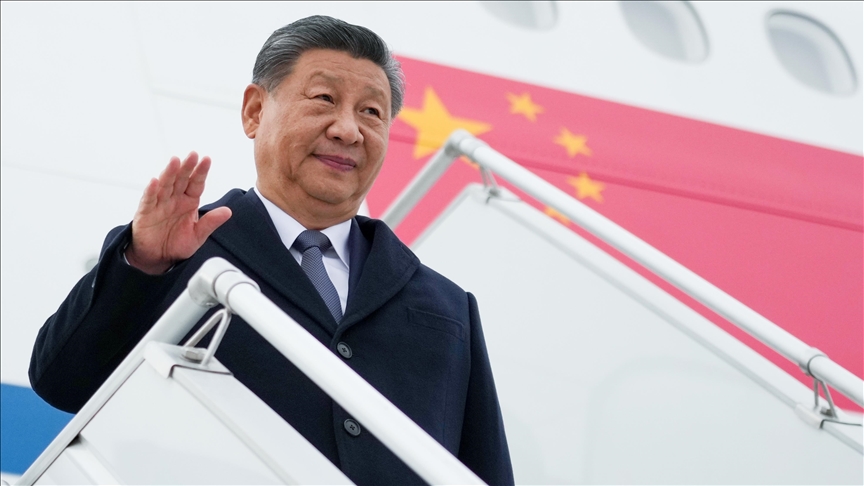Xi becomes 1st Chinese president to attend Xinjiang’s founding anniversary
Founded in 1955, Xinjiang is one of China’s five autonomous regions, home to at least 10 million predominantly Muslim Uygurs
 President of the People's Republic of China Xi Jinping
President of the People's Republic of China Xi Jinping
- Founded in 1955, Xinjiang is one of China’s five autonomous regions, home to at least 10 million predominantly Muslim Uygurs
- Xi Jinping, aides, are attending 70th anniversary of China's western province
ISTANBUL
Chinese President Xi Jinping has become the first Chinese leader to attend the founding anniversary of the Xinjiang Uyghur Autonomous Region.
Xi arrived in the capital Urumqi on Tuesday, leading a delegation that included Communist Party ideologue Wang Huning and Cai Qi, chief of staff to the Chinese president.
The top-level delegation is attending events marking the 70th anniversary of the western region’s establishment, according to state-run Xinhua News Agency.
During meeting with local representatives, Xi called for efforts to build a “beautiful Xinjiang in the process of Chinese modernization.”
Xi had also conducted an inspection tour of Xinjiang in July 2022.
Founded in October 1955, Xinjiang is one of China’s five autonomous regions with a significant ethnic minority population. It is home to at least 10 million Uyghurs who are predominantly Muslim.
The Turkic Muslim group, which makes up around 45% of the region’s population, has long accused China of cultural, religious and economic discrimination. Beijing denies the allegations.
Covering approximately one-sixth of China’s total land mass, Xinjiang lies at the crossroads of the historic Silk Road and currently provides a strategic land route connecting Beijing to the Arabian Sea via the Karakoram Highway through Pakistan.
The region has a population of over 25 million and is divided into 14 prefectures and more than 90 counties.
China also shares a narrow land connection with Afghanistan via the Wakhan Corridor, offering the landlocked country direct access to the world’s second-largest economy through Xinjiang.
China shares borders with Kazakhstan, Tajikistan, Kyrgyzstan, Russia, Mongolia and India through Xinjiang.
In 2010 and 2014, China’s central government held two meetings to discuss Xinjiang-related policy, laying down what it called “guiding principles and strategies” for governance in the region, according to the State Council Information Office.
Earlier this year, in July, Xi also became the first Chinese president to attend the founding anniversary of the Tibet Autonomous Region. This year marked the 60th anniversary of the southwestern region.








